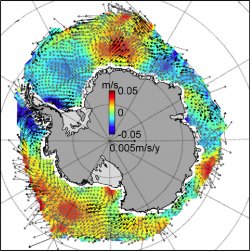- Dec 18, 2013
- 136,370
- 27,906
- 2,180
- Thread starter
- #41
So is there some mandate that glaciers don't melt? Isn't the Grand Canyon the result of melting glaciers? I don't think there are any there today. I ask a question, isn't possible that the glaciers would eventually melt around the world after the ice age?Yes, the Andes are one area that the warming is affecting, and in a very serious manner. Here is a study:
https://facweb.northseattle.edu/ccummings/Cultural Anthropology/Glaciers of the Andes are Meltin.PDF

